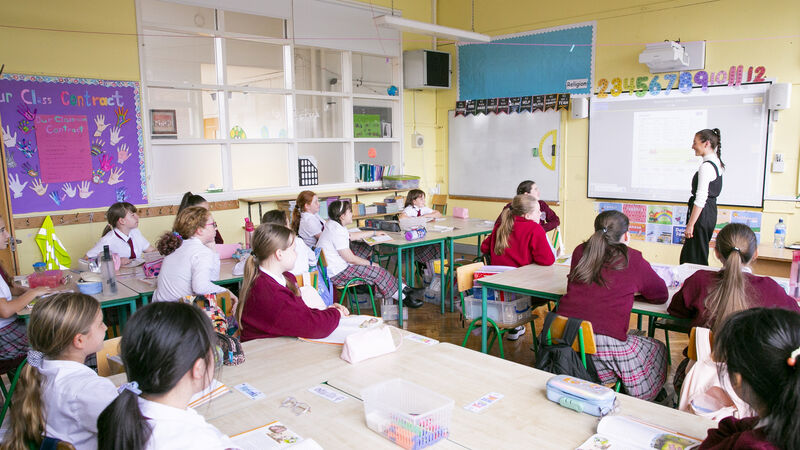School principal urges parents to be more vigilant over their children's smartphone use

Pupils at Presentation School Terenure, Dublin: 'We had advised parents if children came to them to say they had access to something online that frightened them, then to listen and help,' said principal Carmel Hume. Picture: Gareth Chaney/ Collins
A primary school principal has called for parents to be more vigilant with their children’s use of smartphones, saying the device “is being used by forces it was never designed for”.
Carmel Hume from Presentation Primary School, Terenure, was speaking in the wake of a report on cyberbullying.










